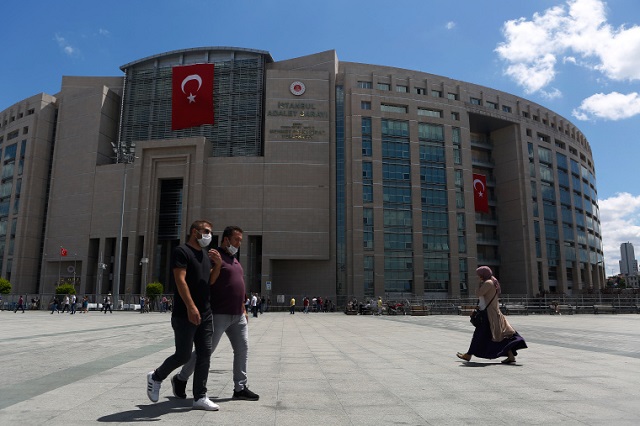Istanbul – Turkey must stop harassing journalists and prosecuting them on trumped up charges, the Committee to Protect Journalists said today.
Yesterday, a court Istanbul rejected an appeal by exiled journalist Can Dündar, thereby allowing authorities to seize his assets in Turkey, the news website Duvar English reported.
Today, another Istanbul court convicted freelance journalist Sabiha Temizkan of making terrorist propaganda and sentenced her to 15 months in prison for a tweet from 2014, the independent news website Bianet reported, stating that she is free pending appeal.
Tomorrow, hearings in Istanbul are scheduled to continue in the trials of two Turkish Bloomberg reporters, Kerim Karakaya and Fercan Yalınkılıç, as well as three other journalists and 33 other co-defendants, reports said.
Read also
“Turkish authorities persist in filing baseless and harassing charges against journalists for doing their jobs. The continuing legal cases against Can Dündar, Sabiha Temizkan, Kerim Karakaya, and Fercan Yalınkılıç are purely retaliatory, and the charges against them must be dropped immediately,” said Gulnoza Said, CPJ’s Europe and Central Asia program coordinator, in New York. “None of these journalists has committed any crime, let alone sharing terrorist propaganda, spreading false information about the economy, or any other ludicrous charge authorities may try to cook up.”
In September, Turkish authorities threatened that Dündar’s assets, including a family home where his mother lives, would be seized if he did not return to Turkey from Germany to be tried for alleged anti-state activities, as CPJ documented at the time. In 2016, Dündar received CPJ’s International Press Freedom Award in recognition of his fight against government harassment and prosecution while working as the chief editor of pro-opposition daily Cumhuriyet; he now runs the Özgürüz radio station.
In Temizkan’s case, authorities allege that her 2014 tweet about the fall of an Iraqi village to the Islamic State militant group constituted terrorist propaganda, according to Bianet. The journalist pled not guilty, saying that she tweeted a news article headline and mistakenly did not include a link to the story itself; the prosecution alleged that the story’s headline violated the law, according to that report.
In tomorrow’s trial of Karakaya and Yalınkılıç, the prosecution alleges that the journalists’ August 10, 2018, article about Turkey’s banks and monetary policy constituted sharing “false, wrong, or deceptive information” to affect the markets, which can carry a penalty of up to five years in prison, as CPJ has documented.
Charges have also been filed against 36 co-defendants for allegedly sharing that allegedly false information on social media, according to Bianet, including Al Monitor columnist Mustafa Sönmez, TELE1 chief editor Merdan Yanardağ, and freelance journalist and Sedef Kabaş. All defendants are free pending trial, according to that report.
CPJ emailed the office of the Istanbul chief prosecutor’s office for comment on the three cases, but did not immediately receive any reply.
Committee to Protect Journalists
























































